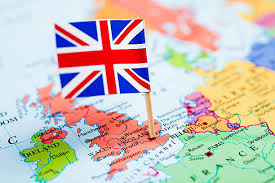Pakistan's Prime Ministers: A Journey from 1947 to 2023
Since its inception in 1947, Pakistan has witnessed numerous changes in leadership, with a total of 23 individuals serving as Prime Ministers up to 2023. This blog provides a comprehensive overview of each Prime Minister who has held office in Pakistan during this period, highlighting their contributions, challenges, and the political landscape of their times.
1. Liaquat Ali Khan (1947-1951)
- Liaquat Ali Khan was Pakistan's first Prime Minister and played a pivotal role in shaping the nation's early years.
- His tenure faced challenges related to the country's security, the integration of princely states, and the refugee crisis resulting from partition.
2. Khwaja Nazimuddin (1951-1953)
- Khwaja Nazimuddin succeeded Liaquat Ali Khan and had to address issues related to provincial autonomy and religious minorities.
3. Mohammad Ali Bogra (1953-1955)
- Mohammad Ali Bogra's tenure saw the establishment of a parliamentary system, but he faced criticism for his handling of the Kashmir issue.
4. Chaudhry Muhammad Ali (1955-1956)
- Chaudhry Muhammad Ali served during the early years of the One Unit policy, which aimed to consolidate provinces into larger units.
5. Hussain Shaheed Suhrawardy (1956-1957)
- Suhrawardy's brief term focused on resolving the Suez Crisis and addressing economic challenges.
6. Sikander Mirza (1955-1956) & (1957-1958)
- Although not a Prime Minister, Mirza played a significant role as the first President of Pakistan.
7. Feroz Khan Noon (1957-1958)
- Feroz Khan Noon's term was marked by political instability, leading to the imposition of martial law by Ayub Khan in 1958.
8. Ayub Khan (1958-1969)
- Ayub Khan's rule saw economic growth and infrastructure development but was marred by authoritarianism and a lack of political freedom.
9. Nurul Amin (1971)
- Nurul Amin served briefly during a turbulent period, including the separation of East Pakistan (now Bangladesh).
10. Zulfikar Ali Bhutto (1973-1977)
- Bhutto's tenure brought about significant social and economic reforms but also witnessed political controversies.
11. Muhammad Khan Junejo (1985-1988)
- Junejo served as a civilian Prime Minister during General Zia-ul-Haq's military regime, focusing on political reconciliation and economic stability.
12. Benazir Bhutto (1988-1990) & (1993-1996)
- Benazir Bhutto made history as Pakistan's first female Prime Minister, focusing on social development and women's rights.
13. Nawaz Sharif (1990-1993) & (1997-1999) & (2013-2017)
- Nawaz Sharif's terms were marked by economic reforms and infrastructure projects, but his tenure also witnessed political turmoil and military interventions.
14. Ghulam Mustafa Jatoi (1990)
- Jatoi served as a caretaker Prime Minister during a transitional period.
15. Malik Meraj Khalid (1997)
- Khalid served as a caretaker Prime Minister during the 1997 elections.
16. Pervez Musharraf (1999-2001)
- Musharraf assumed power through a military coup and held both the positions of President and Chief Executive.
17. Zafarullah Khan Jamali (2002-2004)
- Jamali's term focused on coalition politics and regional stability.
18. Chaudhry Shujaat Hussain (2004-2004)
- Chaudhry Shujaat Hussain briefly served as a caretaker Prime Minister.
19. Shaukat Aziz (2004-2007)
- Aziz implemented economic reforms, leading to a period of robust economic growth.
20. Yousaf Raza Gillani (2008-2012)
- Gillani's tenure saw political instability and conflicts with the judiciary.
21. Raja Pervaiz Ashraf (2012-2013)
- Ashraf's term was marked by energy crises and political controversies.
22. Nawaz Sharif (2013-2017)
- In his third term, Sharif worked on infrastructure and energy projects.
23. Shahid Khaqan Abbasi (2017-2018)
- Abbasi briefly served as Prime Minister after Nawaz Sharif's disqualification.
24. Imran Khan (2018-2023)
- Imran Khan's tenure focused on anti-corruption efforts, economic reforms, and foreign policy challenges.
Pakistan's political landscape has been dynamic, with each Prime Minister facing unique challenges and leaving their mark on the country's history. As of 2023, the nation continues to evolve under the leadership of Imran Khan, with its future shaped by the legacy of those who came before him.


Comments
Post a Comment